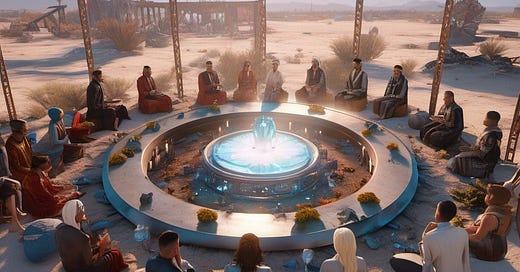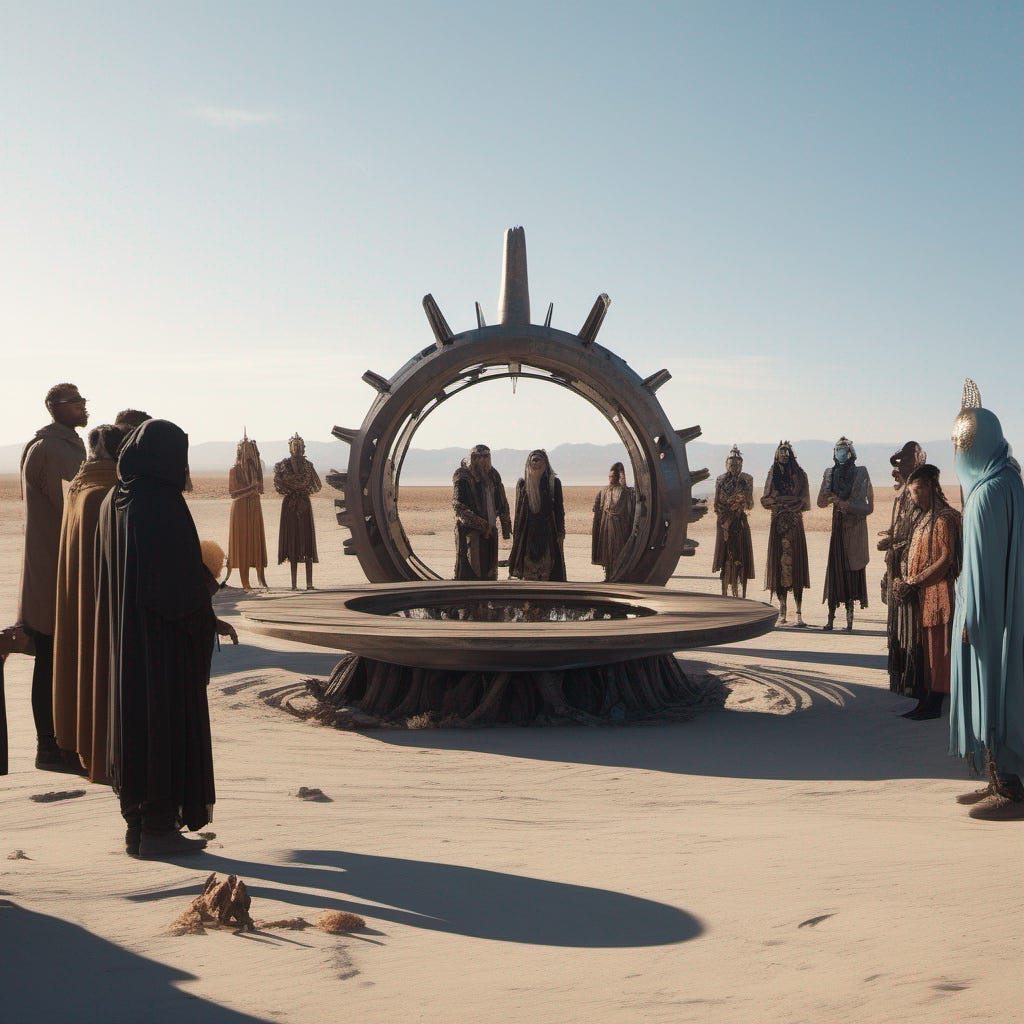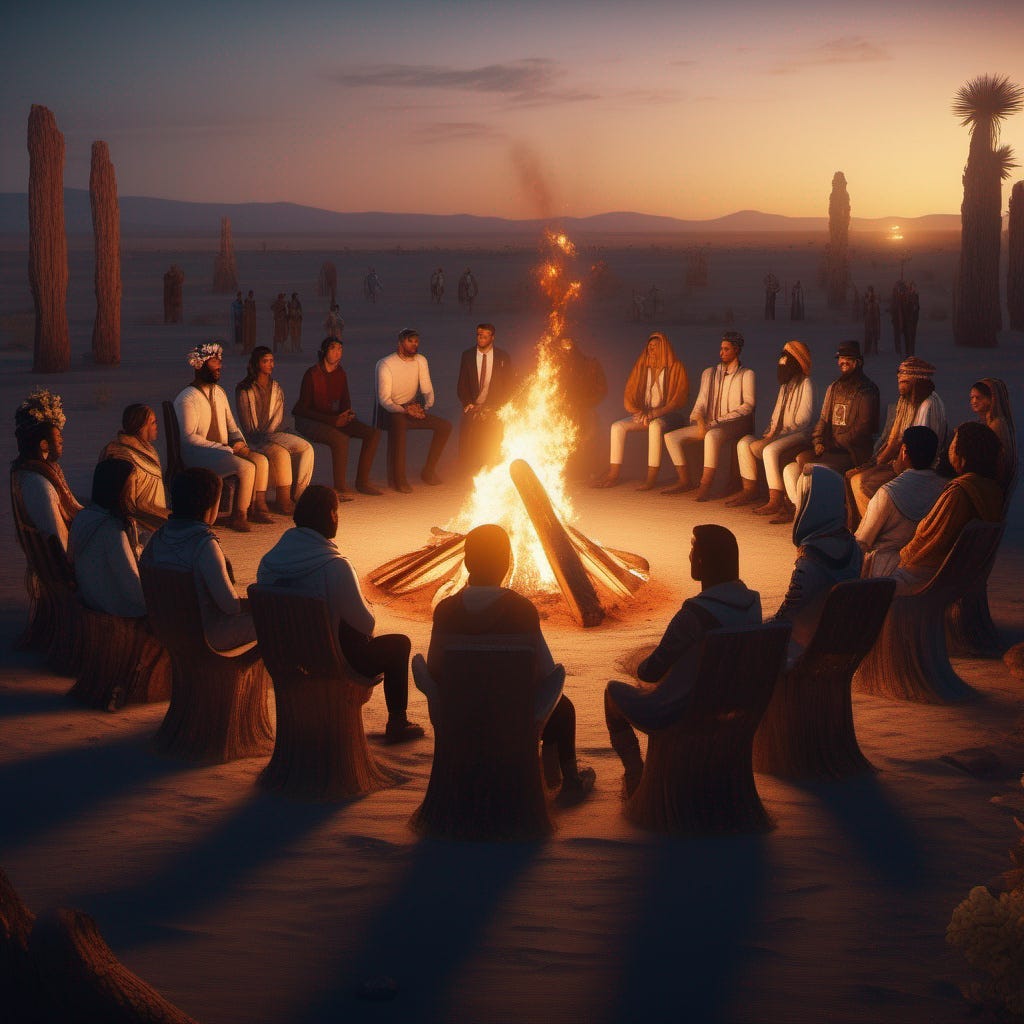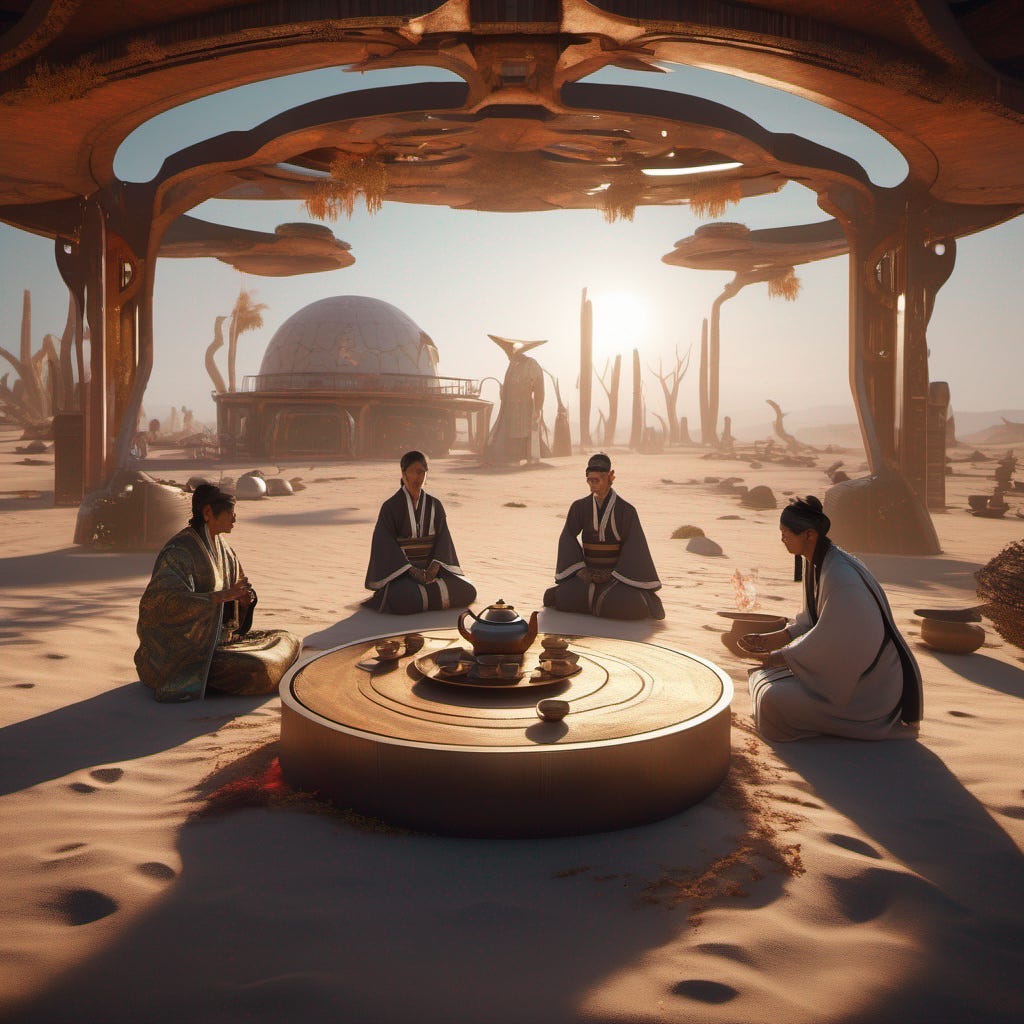A RITUAL IS A SYMBOLIC, PRESCRIBED SET OF ACTIONS, WORDS OR CEREMONIES PERFORMED IN A SPECIFIC ORDER AND MANNER, OFTEN WITH DEEP CULTURAL, SPIRITUAL OR SOCIAL SIGNIFICANCE.
RITUALS SERVE VARIOUS PURPOSES, SUCH AS EXPRESSING BELIEFS, FOSTERING A SENSE OF COMMUNITY, MARKING TRANSITIONS AND INVOKING THE SACRED OR SUPERNATURAL.
RITUALS OFTEN INVOLVE REPETITION AND ADHERENCE TO TRADITION, PROVIDING A STRUCTURED FRAMEWORK FOR INDIVIDUALS OR GROUPS TO ENGAGE WITH THEIR CULTURAL OR SPIRITUAL HERITAGE.
PERFORMANCE IS AN INTEGRAL ASPECT OF RITUALS, AS IT IS THROUGH THE PHYSICAL AND SYMBOLIC ENACTMENT OF PRESCRIBED ACTIONS THAT RITUALS FULFILL THEIR FUNCTIONS.
RITUALS ARE A REFLECTION OF THE HUMAN NEED FOR STRUCTURE, MEANING AND CONNECTION.
THEY EVOLVE AND ENDURE AS THEY SERVE IMPORTANT ROLES WITHIN SOCIETIES, HELPING INDIVIDUALS AND COMMUNITIES MAKE SENSE OF THEIR EXISTENCE AND NAVIGATE THE COMPLEXITIES OF LIFE.
This study group is aimed at learning and sharing knowledge, books, movies, images, text, insights and intuitions around rituals and their performance.
We will meet weekly and I will facilitate the group organizing materials and discussions around the topics, but the idea is that every member of the group will contribute to this study.
It will also be a highly experimental practice, so we can create and test ritual practices and formats. This will open the conversation around their meaning, symbols and what are the rituals we need to rescue, create and perform in contemporary times to activate community connection and memory.
Religion might be part of our discussions as we dive together in the realm of rituals but I plan to leave out its practices in respect to each person’s individual faith and religious beliefs. That doesn’t mean that spirituality and the sacred won’t be included but I aim to approach it through the lens of ecofeminism, holding the interconnectedness of life and our planet as the common ground of what is to be considered sacred.
As a student and practitioner of tea ceremonies for the past 8 years, I intend to share this practice and whatever knowledge I’ve acquired through it with the group at the beginning of each meeting.
I've designed, with the help of ChatGPT, an outline of what our weekly meetings could look like, with topics for discussion and a suggested bibliography, which is not mandatory but can help guide our studies. This could and should be expanded to include other media (movie, arts, youtube videos, lectures etc) but also our own personal insights on the subject matter.
Meeting 1:
Introduction to Rituals
• Topic: Defining rituals, their significance, and universality.
• Discussion Points: What is a ritual? Why do humans engage in rituals? Are rituals universal?
• Sources:
Book: "Ritual: Perspectives and Dimensions" by Catherine Bell
Academic Article: "The Ritual Process: Structure and Anti-Structure" by Victor Turner
Meeting 2:
Types and Functions of Rituals
• Topic: Exploring various types of rituals and their functions.
• Discussion Points: What are the different categories of rituals? How do rituals function in society?
• Sources:
Book: "Ritual Theory, Ritual Practice" by Catherine Bell
Academic Article: "Ritual and the Social Construction of Reality" by Roy A. Rappaport
Meeting 3:
Ritual Symbolism and Meaning
• Topic: Examining the symbols and meanings embedded in rituals.
• Discussion Points: How do symbols convey meaning in rituals? Can rituals have multiple interpretations?
• Sources:
Book: "Symbols, Selves, and Social Reality" by Kent L. Brintnall
Meeting 4:
Ritual Creation and Innovation
• Topic: Discussing the origins of rituals and how they evolve over time.
• Discussion Points: How are rituals created? What factors lead to the modification or innovation of rituals?
• Sources:
Book: "Ritual, Performance, Media" edited by Pamela J. Stewart and Andrew Strathern
• Academic Article: "Creating Rituals: A New Typology of African Initiation and Affiliation Rites" by Janice Boddy
Meeting 5:
Ritual Performance and Participants
• Topic: Exploring the role of participants in ritual performance.
• Discussion Points: How do individuals engage with rituals? What is the significance of participation?
• Sources:
Book: "The Performance of Ritual" by Pamela J. Stewart and Andrew Strathern
• Academic Article: "Performance as a Theoretical Paradigm" by Richard Schechner
Meeting 6:
Cultural Variations in Rituals
• Topic: Examining how rituals vary across different cultures.
• Discussion Points: What are some examples of culturally specific rituals? How do cultural contexts shape ritual practices?
• Sources:
Book: "The Anthropology of Religion, Magic, and Witchcraft" by Rebecca L. Stein and Philip L. Stein
Meeting 7:
Rituals of Passage
Topic: Exploring rituals associated with life transitions.
• Discussion Points: How do cultures mark birth, puberty, marriage, and death through rituals?
• Sources:
Book: "Passages: Predictable Crises of Adult Life" by Gail Sheehy
Academic Article: "Rituals of Manhood: Male Initiation in Papua New Guinea" by Gilbert Herdt
Meeting 8:
Modern and Secular Rituals
• Topic: Investigating contemporary and secular rituals.
• Discussion Points: How have modern societies adapted and created new rituals? What are some examples of secular rituals?
• Sources:
Book: "The Art of Ritual: Creating and Performing Ceremonies for Growth and Change" by Renee Beck and Sydney Barbara Metrick
Academic Article: "Secular Ritual" by Ronald L. Grimes
As a final project, whoever feels called to take part on it will be invited to co-create a Water Ceremony in honor of the Salton Sea, which is to be performed during Mars finals.










